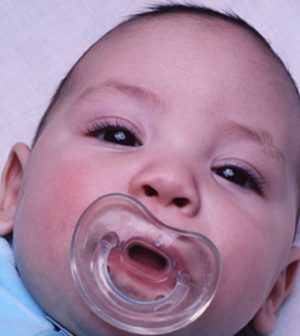- 10 Strategies to Overcome Insomnia
- Could Artificial Sweeteners Be Aging the Brain Faster?
- Techniques for Soothing Your Nervous System
- Does the Water in Your House Smell Funny? Here’s Why
- Can a Daily Dose of Apple Cider Vinegar Actually Aid Weight Loss?
- 6 Health Beverages That Can Actually Spike Your Blood Sugar
- Treatment Options for Social Anxiety Disorder
- Understanding the Connection Between Anxiety and Depression
- How Daily Prunes Can Influence Cholesterol and Inflammation
- When to Take B12 for Better Absorption and Energy
COVID Vaccine in Pregnancy Won’t Raise Odds for Preemie Birth

Getting a COVID-19 vaccine is safe in pregnancy, experts have been saying for months.
Now, a new study adds evidence to support that advice.
“Getting vaccinated against COVID-19 is important for preventing severe illness in pregnant people,” said study author Dr. Heather Lipkind, an associate professor of obstetrics, gynecology and reproductive sciences at the Yale School of Medicine.
“With the increasing rates of COVID-19 in our community, we are encouraging pregnant people to get vaccinated,” she said in a Yale news release.
For the new study, Lipkind’s team used data from eight health care organizations participating in Vaccine Safety Datalink, a project established by the U.S. Centers for Disease Control and Prevention to monitor vaccine safety. Researchers looked at more than 46,000 pregnant women.
That included 10,064 individuals, or nearly 22%, who had received at least one COVID-19 vaccine dose during pregnancy.
More than 98% of the women who had received the vaccines did so during the second or third trimester of pregnancy. About 1.7% received their vaccines in the first trimester. A majority were vaccinated with the shots developed by Pfizer or Moderna.
The researchers found COVID-19 vaccination during pregnancy was not associated with preterm birth or small-for-gestational-age babies when comparing vaccinated with unvaccinated pregnant women.
Preterm birth, in which babies are delivered earlier than 37 weeks, and being small for gestational age have been associated with a higher risk for infant death and disability.
The trimester when the vaccination was received and the number of COVID-19 vaccine doses received were also not associated with increased risk of preterm birth or with the infant being small for gestational age, the study found.
Despite the recommendation to get vaccinated, only 31% of pregnant women had received vaccines as of September. So far, research has shown that their most common concerns have been a lack of information about COVID-19 vaccine safety in pregnancy and potential harm to the fetus.
Meanwhile, pregnant women are considered a high-risk group in terms of the impact of COVID-19. They have an increased risk of severe disease and death and are more likely to require admission into the intensive care unit, invasive ventilation and machine-assisted blood oxygenation.
The findings were reported Jan. 4 in the CDC publication Morbidity and Mortality Weekly Report. The CDC and the American College of Obstetricians and Gynecologists both recommend the COVID-19 vaccine for women who are pregnant, breastfeeding, trying to get pregnant, or might become pregnant in the future.
More information
The U.S. Centers for Disease Control and Prevention has more on getting COVID-19 vaccines while pregnant or breastfeeding.
SOURCE: Yale University, news release, Jan. 4, 2022
Source: HealthDay
Copyright © 2026 HealthDay. All rights reserved.










